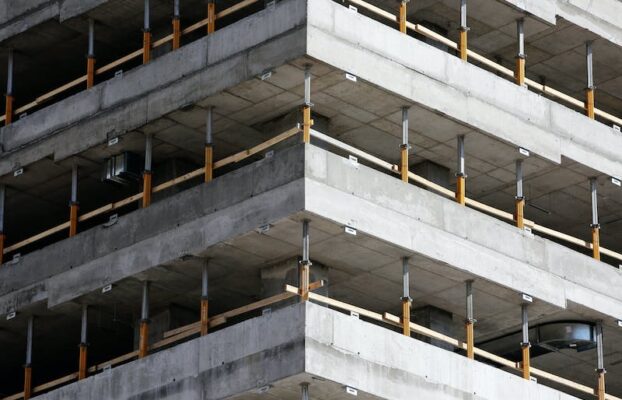The recent announcement of an agreement between the Nigerian Government and cement manufacturers in Nigeria to peg the price of a 50kg bag of cement at between N7000 and N8000[1] (the “Pricing Mandate”) raises some important questions of competition law because price fixing is generally prohibited by Nigeria’s competition law ( the “FCCP Act[2]”). Price fixing is considered to be an offence under the FCCP Act as well under the EFCC Act[3]. Under the FCCP Act, a company can be fined up to 10% of its turnover. Individuals can be fined up to N10,000,000 (Ten Million Naira).
A key legal issue that arises is whether the Pricing Mandate constitutes illegal price fixing under the FCCP Act, warranting fines for cement manufacturers.
Based on publicly available facts, it is doubtful that the Pricing Mandate constitutes illegal price fixing. Firstly, Section 59 and 63 of the FCCP Act[4] appears to contemplate price fixing/cartel activities between private actors and in a commercial context, without interference from a public entity.
To the extent that the Pricing Mandate is at the behest of the Nigerian Government, it is doubtful whether the Pricing Mandate satisfies the legal criteria for price fixing under FCCP Act. Secondly, there appears to be a lack of voluntary agreement among cement manufacturers regarding the Pricing Mandate, especially considering reports[5] of governmental pressure around opening Nigeria’s land borders to allow for the importation of cement.
A review of administrative and judicial decisions on price fixing suggests that offending parties willingly enter into price fixing arrangements with a view to gaining some benefit from such price fixing activities.
The Regulated Conduct Defense
In defence to a legal action initiated by the FCCPC[6] against a cement manufacturer, it should be possible for a cement manufacturer to plead the regulated conduct defence, either as a statutory defence as preserved under the FCCP Act or as an equitable matter. In practice, the regulated conduct defence essentially provides immunity where a conduct alleged to be anti-competitive is required by federal or state regulation or directive.
Another related issue is whether or not the Pricing Mandate is legally binding on cement manufacturers such as to provide a legal basis for taking action against cement manufacturers who sell cement above the Pricing Mandate
It is doubtful that the Pricing Mandate is legally binding on cement manufacturers. The reason is because, section 88 the FCCP Act specifies the process which the Nigerian Government must comply with where the Nigerian Government wishes to fix the price of cement in the interest of Nigerians[7]. To the extent that the Nigerian Government has not complied with Section 88, it is doubtful that the Pricing Mandate bears any legal effect any more than a gentleman’s agreement.
Considerations for Cement Manufacturers
Regulatory developments and approaches in other markets can often inform regulatory behavior in emerging markets. For instance, in 2016, the competition regulator in India imposed a fine of up to $994,000 million on 10 cement manufacturers, including Lafarge, India Cement and ACC, for price fixing and cartelization.
A keen regulatory focus also been recorded in the cement markets in the United Kingdom. For example, an investigation in the UK cement market determined that unilateral price announcements by cement manufacturers could be anti-competitive.
Final Comments
Given the critical nature of cement to infrastructure development and to the basic human need for shelter, cement markets tend to be a key area of regulatory focus for not just competition regulators but also for politicians. Given the ongoing engagements between the Nigerian Government and cement manufacturers, the stage appears set for a broad-based fact-finding investigation on the functioning of the cement market in Nigeria, by the FCCPC.
It should be noted that such industry-wide investigations are generally distinct from competition law enforcement actions and are typically done to proactively identify competition & consumer protection issues in the relevant markets. Such investigations can often be a prelude to a comprehensive enforcement action.
Against this background, the regulatory issues arising from the Pricing Mandate highlights the need for manufacturers in cement markets to take competition issues seriously and to obtain professional guidance on competition issues.
This publication is not intended to provide legal advice and is not prepared with a specific client in mind. Kindly seek professional advice specific to your situation. You may also reach out to your usual Balogun Harold contact or contact us via support@balogunharold.com for support.
Related Services
- Merger notifications
- Mergers & Acquisitions transactions (strategic, private equity & venture capital)
- Shareholder & Investment Litigation
- Second Opinions & Legal Opinions, generally
- Data Privacy Compliance Audits
- Market Entry & Foreign Direct Investments
[1]https://leadership.ng/cement-manufacturers-slash-price-to-n8000-after-meeting-with-federal-govt/
[2] The FCCP Act is the Federal Competition & Consumer Protection Act, applicable in Nigeria
[3] Price fixing may amount to a form of “Economic & Financial Crime” under the extant Economic & Financial Crimes Commissions Act.
[4] These are the controlling provisions for the price fixing regime under the FCCP Act
[5] https://businessday.ng/news/article/cement-price-hike-fg-threatens-to-open-borders/
[6] FCCPC is the competition regulator in Nigeria
[7] This is without prejudice to the intendment of the extant Price Control Act, applicable in Nigeria
[8] https://www.reuters.com/article/india-cement-fine/cci-fines-cement-companies-944-million-for-price-fixing-idINKCN11620M/
[9]https://assets.publishing.service.gov.uk/media/5329df94e5274a226b000297/130521_remedies_notice.pdf . See generally, https://eur-lex.europa.eu/legal-content/EN/TXT/PDF/?uri=CELEX:52023XC0721(01)


